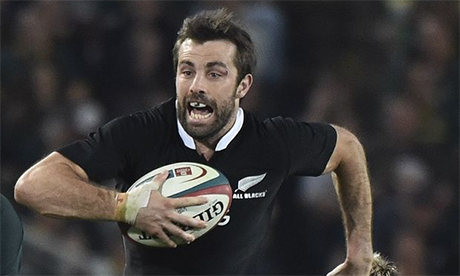At an audience in the Vatican in 2013, standing in front of the assembled Italian and Argentine rugby squads – hard-bitten, elite sportsmen, in the toughest, roughest of games – Pope Francis reached for a metaphor.
Wanting to convey the need for cooperation in life, he said: “The important thing is not running alone. We need to run together, and the ball must be passed from hand to hand, and carried along until we reach the goal line. Then we celebrate.”
It sounds almost dainty in Francis’s words. But rugby, of course, is a dangerous business.
Many of the players who sat before the Pope two years ago will be arriving on these shores soon to slug it out for the World Cup, which is underway.
Italy and Argentina are just two of the traditional Catholic nations that have embraced the game invented on the playing fields of English public schools.
Muscular Christianity is interdenominational, it seems.
The Irish team famously draws players from north and south, and always has done.
Eamon de Valera, 1916 revolutionary, staunch advocate of the Irish language and a president of Ireland, apparently believed that no other sport suited the Irish quite so much: “There is no football game to match rugby.
If all our young men played rugby, not only would we beat England and Wales, but France and the whole lot of them together.”
And when it comes to English independent schools, rugby and religion run through some of the Catholic ones like the letters in a stick of rock.
Simon Easterby, who will be coaching the Irish forwards at the World Cup and who played 65 times for Ireland himself, went to Ampleforth – as did (briefly) Lawrence Dallaglio, World Cup winner for England in 2003.
Two other members of the 2003 squad, Iain Balshaw and Kyron Bracken, went to Stonyhurst.
Prior Park was where Cardinal Cormac Murphy-O’Connor learnt his rugby.
His autobiography, An English Spring, includes a photograph of the English College team taken during his time in Rome in the 1950s. It shows 15 pale, mud-spattered young men, grinning madly.
The book also tells the story of his desperate efforts to find a Roman bar with a radio that could pick up the World Service in order to find out how his brother James had fared when playing for Ireland against England at Twickenham.
When he succeeded in finding the radio, it was to hear the commentator recapping on events. England had won. James, a goal-kicking lock forward (now a thing unheard of), had been stretchered off, apparently nobbled while Ireland were winning. (Remember, there were no substitutes in those days.)
But pride of place among rugby schools must surely go to John Fisher RC High School, a mixed comprehensive in Wigan.
On a single day in November 2013, six past pupils played Test rugby for England.
Yes, six.
Three in League: Sam Tomkins, Sean O’Loughlin and Liam Farrell played against Fiji in Hull. And three in Union: Chris Ashton, Joel Tomkins and Owen Farrell played against Argentina at Twickenham. (Farrell is in the England squad for the World Cup. His father Andy is part of the England coaching team, having played for his country in both League and Union.)
This is a staggering feat for one school.
As something that connects sporting achievement at the highest level with childhood and local pride, it ranks alongside the Lisbon Lions: every one of the team that beat Inter Milan to win the European Cup in 1967 had been born within a 30-mile radius of Celtic Park in Glasgow.
Perhaps the most remarkable individual story, though, belongs to the late Mgr Tom Gavin.
Mgr Gavin was born in Coventry in 1922 to immigrants from Mayo and Roscommon.
His life was not short of achievements.
He could point to a First in Classics from Cambridge; and to organising the Mass at Baginton Airport in the Midlands during the 1982 papal visit.
He taught at Ampleforth and was headmaster of two schools. But he also played rugby for London Irish, Nuneaton and Moseley.
And he is the only Catholic priest to have played international rugby for Ireland.
Indeed, he is the only priest to have played international rugby for any country after being ordained.
Fr Paul Kane played for Marist St Pats and the All Blacks before becoming a priest.**
Marnie Cunningham of Ireland and Terry Curley of Australia also became priests after their international careers were over. Continue reading
- **Correction of the original article: Paul Kane played for Marist Old Boys while he was a priest teaching at St Patrick’s College Wellington. During this time, and while still a priest, he represented Wellington, and played for the All Blacks. He played under the name of ‘Markham’ his mother’s maiden name.
- Image: Radio NZ
